In today’s world, people are becoming increasingly conscious of their health, and choosing the right food is essential to maintaining a well-balanced and nutritious diet. The foods we consume have a direct impact on how we feel, how much energy we have, and how healthy we are overall. Whether you’re looking to improve your diet, maintain your weight, or simply lead a healthier lifestyle, eating nutrient-dense foods regularly is the key to achieving your goals.
In this post, we will dive deep into the top 10 healthiest foods that you should incorporate into your daily diet. These foods are not only packed with essential vitamins and minerals, but they can also improve your long-term health, boost your immune system, and support mental well-being. Let’s explore each of these foods and why they deserve a spot on your plate every day.
Table of Contents
1. Leafy Greens (Spinach, Kale, Swiss Chard)
Mixed greens are the underpinning of a solid eating regimen. They are some of the most nutrient-dense foods available, meaning they provide maximum nutrients for very few calories. Leafy greens like spinach, kale, and Swiss chard are excellent sources of vitamins A, C, K, and folate, as well as minerals like iron and calcium. These vegetables are also high in antioxidants that help protect your cells from damage and inflammation.


Health Benefits of Leafy Greens:
- Bone Health: Vitamin K found in leafy greens plays a crucial role in bone health by regulating calcium in the body and promoting bone density.
- Detoxification: The fiber in greens helps cleanse the digestive tract and promotes the elimination of toxins.
- Heart Health: Leafy greens contain nitrates that help lower blood pressure and improve cardiovascular health.
Incorporating Leafy Greens into Your Diet:
- Add spinach or kale to smoothies for a morning energy boost.
- Use leafy greens as a base for salads, or add them to soups, stir-fries, and sandwiches.
2. Berries (Blueberries, Strawberries, Raspberries)
Berries are nature’s candy, packed with antioxidants, fiber, and essential vitamins. Blueberries, strawberries, raspberries, and blackberries are among the best fruits you can eat every day. They are rich in polyphenols, which are powerful compounds that help reduce inflammation, improve heart health, and protect against various chronic diseases.


Health Benefits of Berries:
- Anti-Aging: The antioxidants in berries neutralize free radicals, which can damage cells and accelerate aging.
- Brain Function: Regular consumption of berries has been linked to improved memory and cognitive function, thanks to their high anthocyanin content.
- Heart Health: Berries help reduce LDL (bad) cholesterol levels and improve blood vessel function, reducing the risk of heart disease.
Incorporating Berries into Your Diet:
- Add berries to your morning yogurt, oatmeal, or cereal.
- Enjoy berries as a healthy snack or incorporate them into smoothies and desserts.
3. Nuts and Seeds (Almonds, Walnuts, Chia Seeds, Flaxseeds)
Nuts and seeds are tiny powerhouses of nutrition, providing a wealth of healthy fats, protein, fiber, vitamins, and minerals. They are rich in heart-healthy fats, particularly omega-3 fatty acids, which are essential for reducing inflammation and supporting cardiovascular health. Almonds, walnuts, chia seeds, and flaxseeds are among the healthiest options.
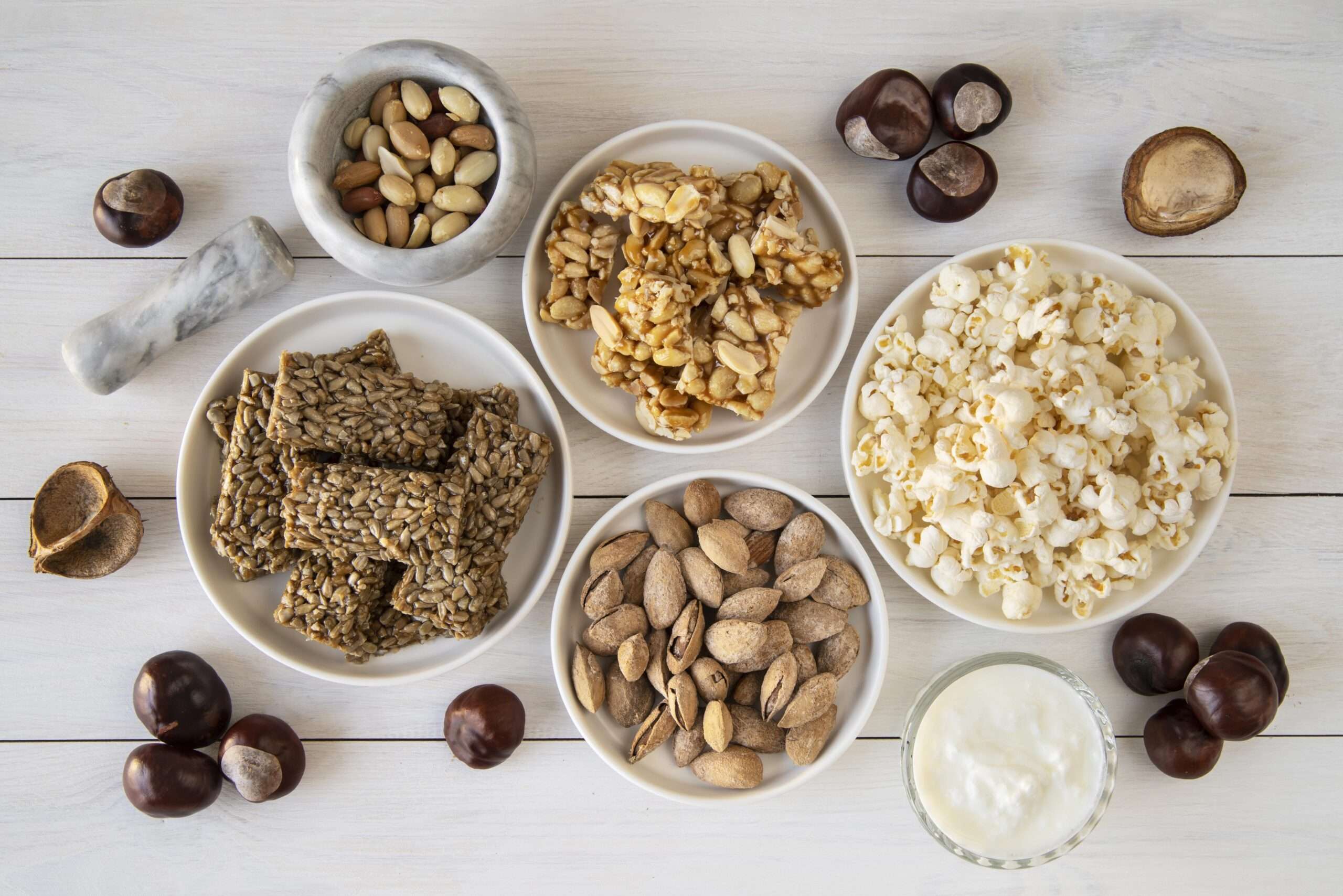

Health Benefits of Nuts and Seeds:
- Heart Health: Omega-3 fatty acids found in walnuts and flaxseeds can lower the risk of heart disease by reducing blood pressure and cholesterol levels.
- Weight Management: The fiber and protein in nuts and seeds help you feel fuller for longer, reducing cravings and overeating.
- Brain Health: The healthy fats in nuts, especially walnuts, support cognitive function and may help prevent neurodegenerative diseases.
Incorporating Nuts and Seeds into Your Diet:
- Sprinkle chia seeds or flaxseeds on yogurt, cereal, or mixed greens.
- Snack on a small handful of almonds or walnuts, or add them to baked goods and smoothies.
4. Avocados
Avocados are one of the healthiest fruits you can eat, thanks to their high content of heart-healthy monounsaturated fats, which help lower bad cholesterol (LDL) and raise good cholesterol (HDL). Avocados are also rich in potassium, fiber, and vitamins C, E, and K. They are highly versatile and can be incorporated into various meals.
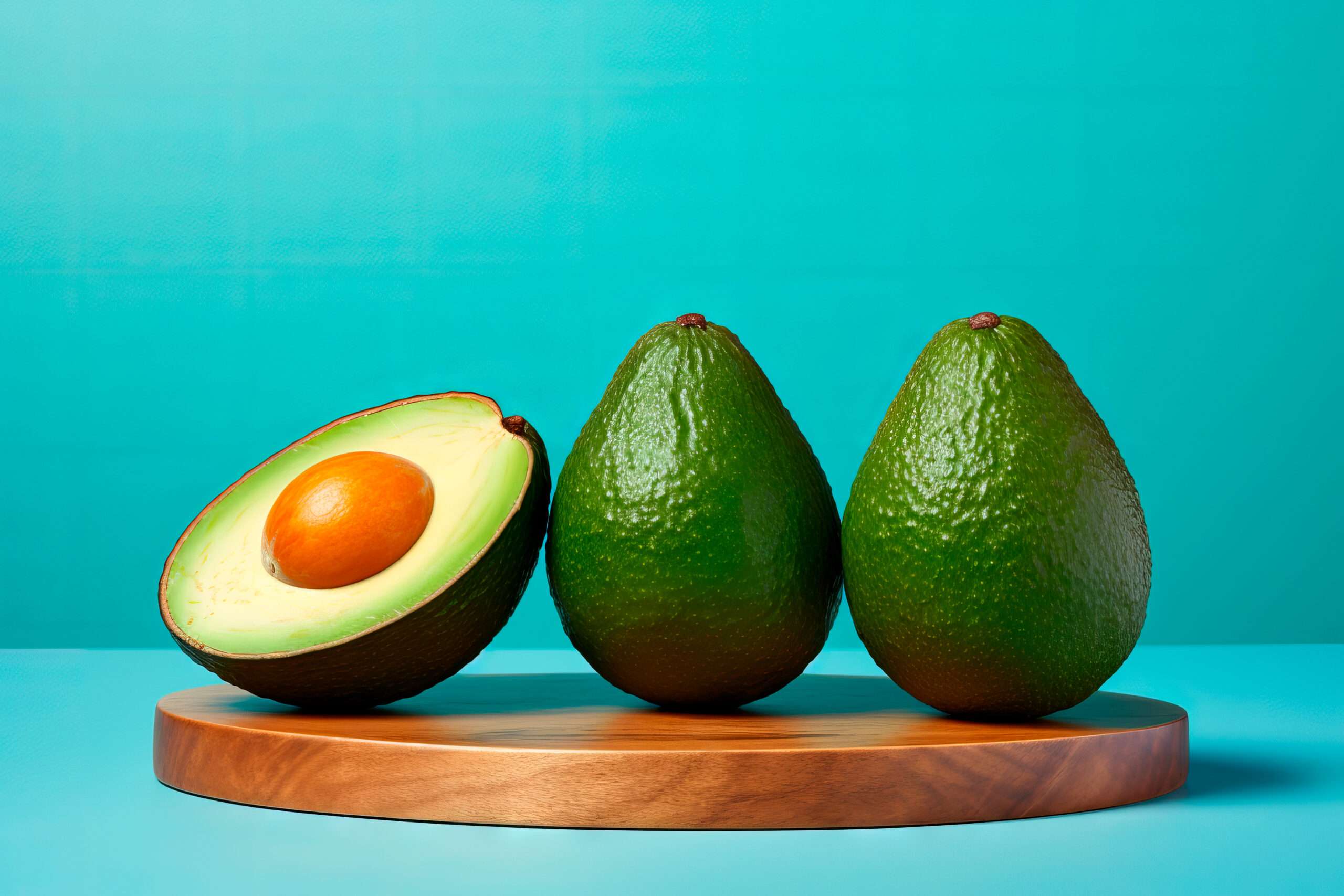

Health Benefits of Avocados:
- Heart Health: The monounsaturated fats in avocados are linked to lower levels of LDL cholesterol and improved heart health.
- Blood Pressure Regulation: Avocados are high in potassium, a mineral that helps regulate blood pressure by balancing sodium levels in the body.
- Skin and Eye Health: Avocados contain lutein and zeaxanthin, antioxidants that promote healthy skin and protect your eyes from damage caused by UV light.
Incorporating Avocados into Your Diet:
- Spread avocado on toast for a simple, nutritious breakfast.
- Add avocado slices to salads, sandwiches, or tacos, or blend them into smoothies for a creamy texture.
5. Fatty Fish (Salmon, Mackerel, Sardines)
Fatty fish like salmon, mackerel, and sardines are some of the best sources of omega-3 fatty acids, which are essential for reducing inflammation, supporting brain health, and protecting the heart. These fish are also rich in high-quality protein, vitamin D, and other essential nutrients.
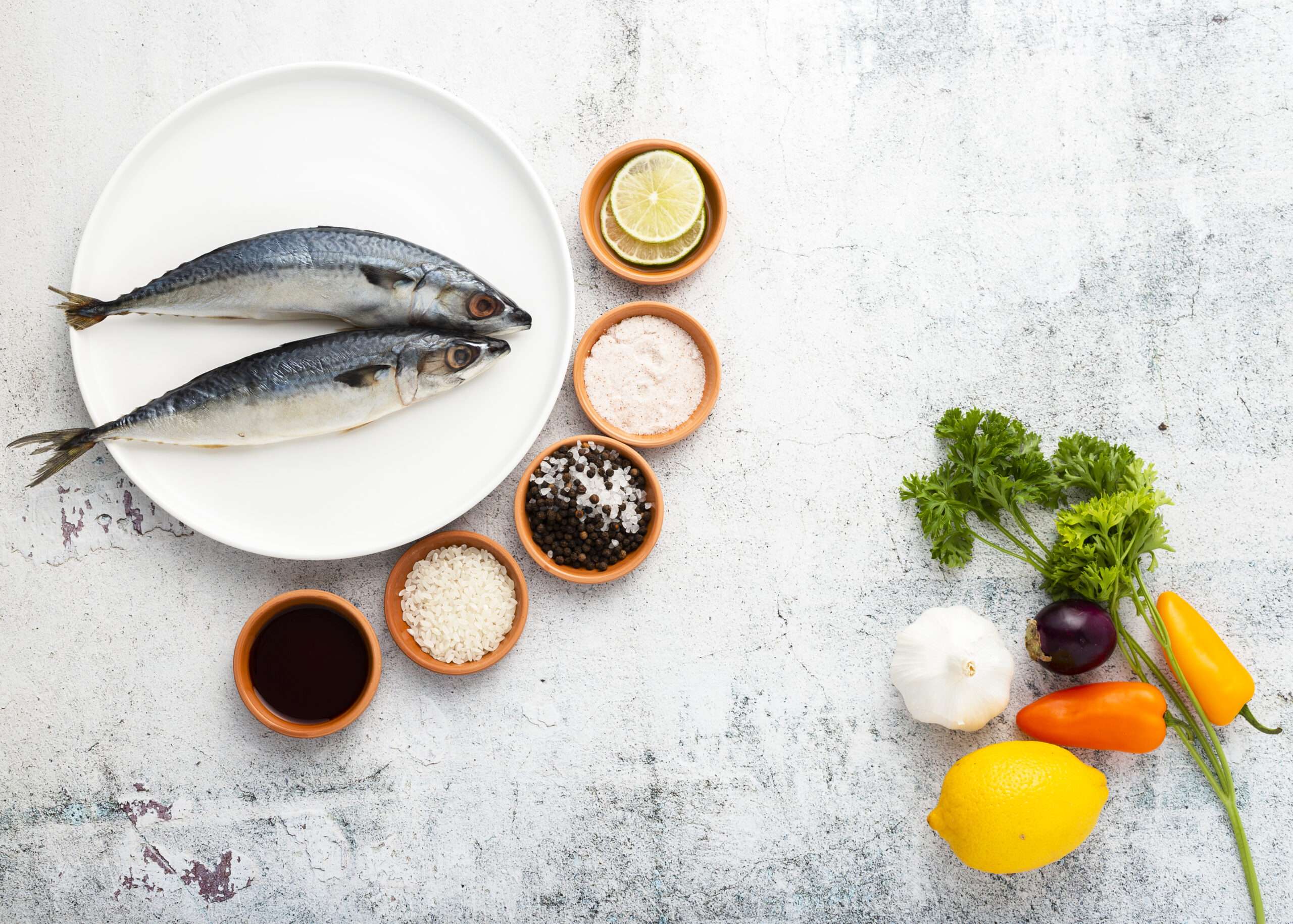

Health Benefits of Fatty Fish:
- Heart Health: Omega-3 fatty acids reduce the risk of heart disease by lowering triglyceride levels, reducing inflammation, and improving blood vessel function.
- Brain Function: Omega-3s are crucial for brain development and function, and regular consumption of fatty fish is linked to a reduced risk of cognitive decline and dementia.
- Mood Regulation: Omega-3s have been shown to improve mood and reduce symptoms of depression and anxiety.
Incorporating Fatty Fish into Your Diet:
- Barbecue or prepare salmon for a solid supper choice.
- Add sardines to salads, or try mackerel in a sandwich for a quick and easy meal.
6. Whole Grains (Quinoa, Brown Rice, Oats)
Whole grains are an excellent source of complex carbohydrates, fiber, and essential nutrients like iron, magnesium, and B vitamins. Unlike refined grains, whole grains contain the bran, germ, and endosperm, which means they retain all the nutrients and provide lasting energy.
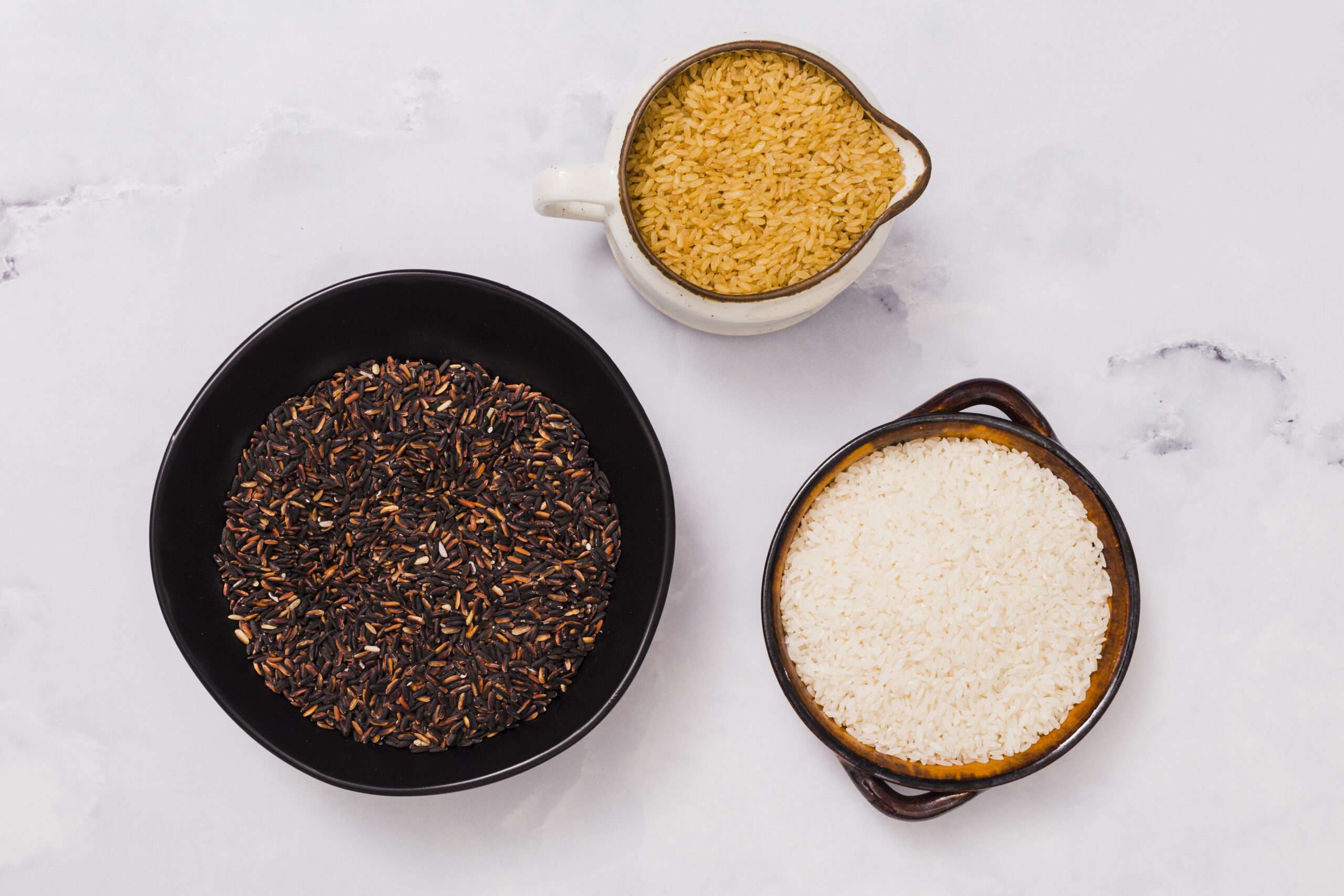

Health Benefits of Whole Grains:
- Heart Health: Whole grains help lower cholesterol levels, reduce blood pressure, and improve blood sugar control, all of which reduce the risk of heart disease.
- Digestive Health: The fiber in whole grains promotes healthy digestion by supporting regular bowel movements and feeding beneficial gut bacteria.
- Weight Management: Whole grains keep you full longer, helping to reduce cravings and overeating.
Incorporating Whole Grains into Your Diet:
- Swap white rice for quinoa or brown rice in your meals.
- Start your day with oatmeal or add whole grains to soups, salads, and stir-fries.
7. Cruciferous Vegetables (Broccoli, Cauliflower, Brussels Sprouts)
Cruciferous vegetables, including broccoli, cauliflower, Brussels sprouts, and cabbage, are packed with vitamins, minerals, and powerful antioxidants. These vegetables are particularly rich in sulfur-containing compounds, such as glucosinolates, which have been shown to reduce the risk of certain types of cancer.


Health Benefits of Cruciferous Vegetables:
- Cancer Prevention: The glucosinolates in cruciferous vegetables help detoxify carcinogens and inhibit the growth of cancer cells.
- Digestive Health: Cruciferous vegetables are high in fiber, which promotes healthy digestion and supports the growth of beneficial gut bacteria.
- Immune Function: These vegetables are high in vitamins A, C, and K, which are essential for maintaining a healthy immune system.
Incorporating Cruciferous Vegetables into Your Diet:
- Steam or roast broccoli and cauliflower as a side dish for lunch or dinner.
- Add shredded Brussels sprouts or cabbage to salads or stir-fries.
8. Eggs
Eggs are a complete protein, meaning they contain all nine essential amino acids needed by the body. They are also rich in vitamins and minerals, including vitamin D, B vitamins, and choline, which support brain health and cell function. Eggs are versatile and can be enjoyed in many different ways.


Health Benefits of Eggs:
- Muscle Repair and Growth: The high-quality protein in eggs supports muscle repair and growth, making them an excellent choice for athletes and those looking to build lean muscle.
- Brain Health: Eggs are one of the best sources of choline, a nutrient that is essential for brain development and function.
- Eye Health: Eggs contain lutein and zeaxanthin, antioxidants that protect your eyes from damage caused by blue light and reduce the risk of cataracts and macular degeneration.
Incorporating Eggs into Your Diet:
- Enjoy scrambled or boiled eggs for breakfast, or add them to salads and sandwiches.
- Use eggs as a base for omelets or frittatas with a variety of vegetables.
9. Legumes (Lentils, Chickpeas, Black Beans)
Legumes are a fantastic source of plant-based protein, fiber, and essential nutrients like iron and folate. They are low in fat and calories, making them a great option for those looking to manage their weight while still providing plenty of nutrition. Lentils, chickpeas, and black beans are versatile and can be incorporated into a wide range of dishes, making them ideal for both vegetarians and meat-eaters alike. Plus, they are inexpensive and widely available.
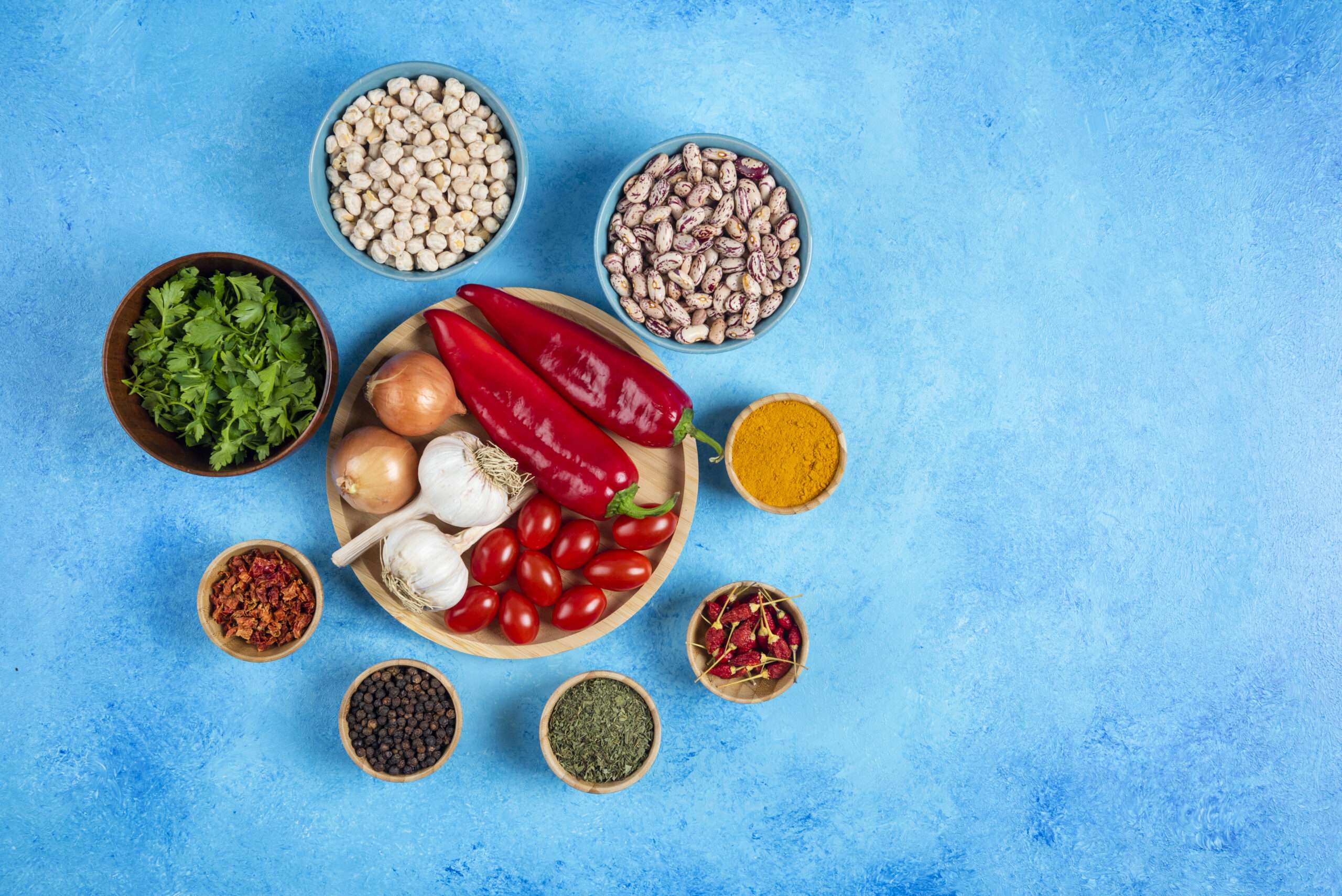

Health Benefits of Legumes:
- Heart Health: Legumes are rich in fiber, which helps lower cholesterol levels and reduce the risk of heart disease.
- Blood Sugar Control: The complex carbohydrates in legumes are digested slowly, preventing spikes in blood sugar levels and reducing the risk of type 2 diabetes.
- Weight Management: Legumes provide high amounts of fiber and protein, helping to keep you full for longer, which can assist in controlling calorie intake and promoting weight loss.
Incorporating Legumes into Your Diet:
- Add cooked lentils or black beans to soups, stews, or salads for a protein boost.
- Use chickpeas to make hummus or add them to grain bowls and wraps.
10. Greek Yogurt
Greek yogurt is a protein-packed powerhouse that also contains probiotics, which are beneficial bacteria that support gut health. It has less sugar and more protein than regular yogurt, making it a healthier option for those looking to manage weight or improve digestion. Greek yogurt is also rich in calcium, which is vital for maintaining strong bones and teeth.
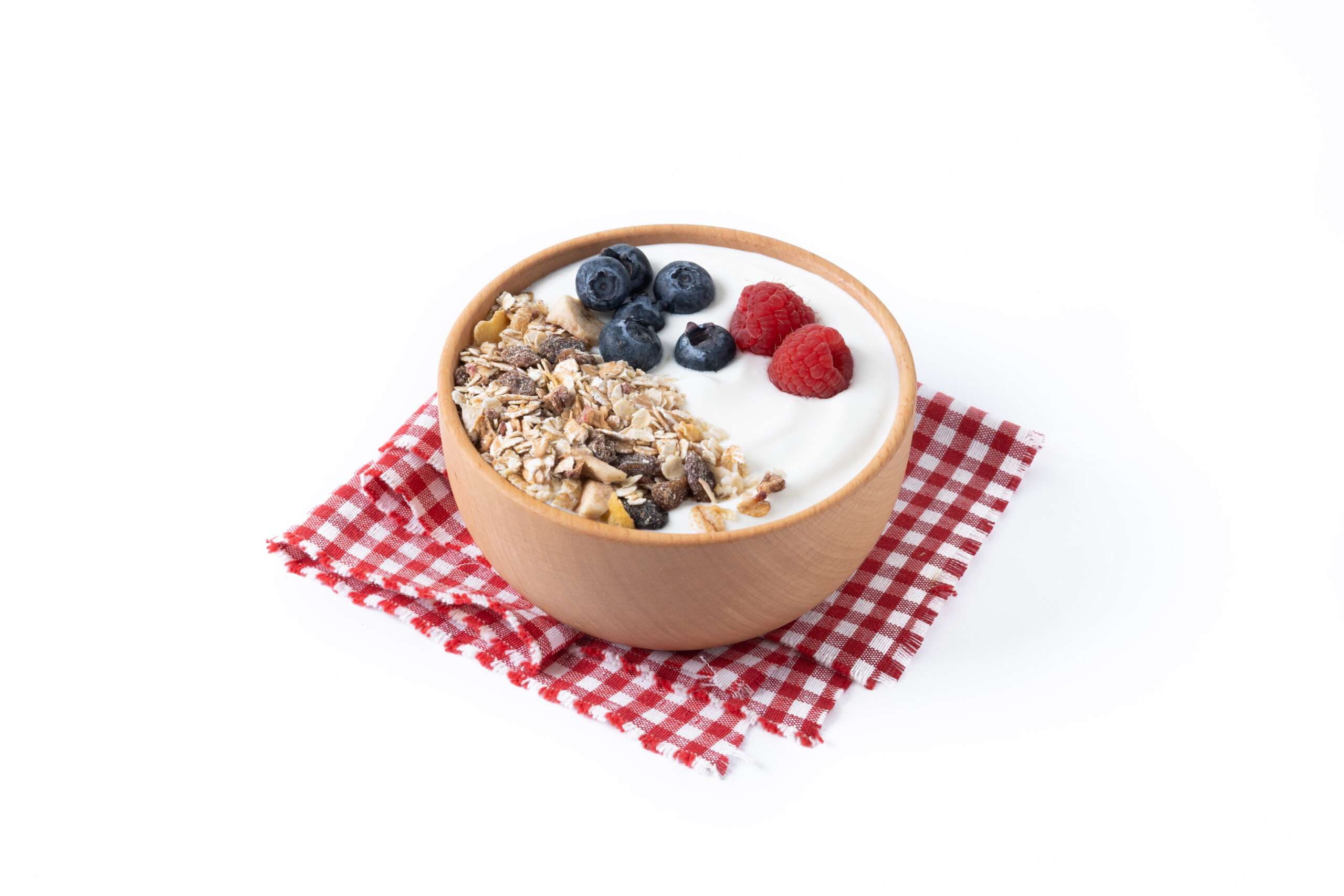

Health Benefits of Greek Yogurt:
- Gut Health: The probiotics in Greek yogurt help maintain a healthy balance of gut bacteria, supporting digestion and reducing the risk of gastrointestinal issues such as bloating and constipation.
- Weight Management: Greek yogurt is high in protein, which helps keep you full and satisfied, reducing cravings and aiding in weight control.
- Bone Health: The calcium and vitamin D in Greek yogurt promote bone health, reducing the risk of osteoporosis.
Incorporating Greek Yogurt into Your Diet:
- Use Greek yogurt as a base for smoothies or parfaits with fruits and granola.
- Substitute Greek yogurt for sour cream or mayonnaise in recipes for a healthier twist.
The Importance of a Balanced Diet
Incorporating these top 10 healthiest foods into your diet is a great way to ensure you are getting the right balance of nutrients. Nonetheless, it’s memorable’s critical that assortment is vital to a sound eating routine. Eating a wide range of foods will provide you with a broad spectrum of vitamins, minerals, and antioxidants, each playing a unique role in maintaining overall health.
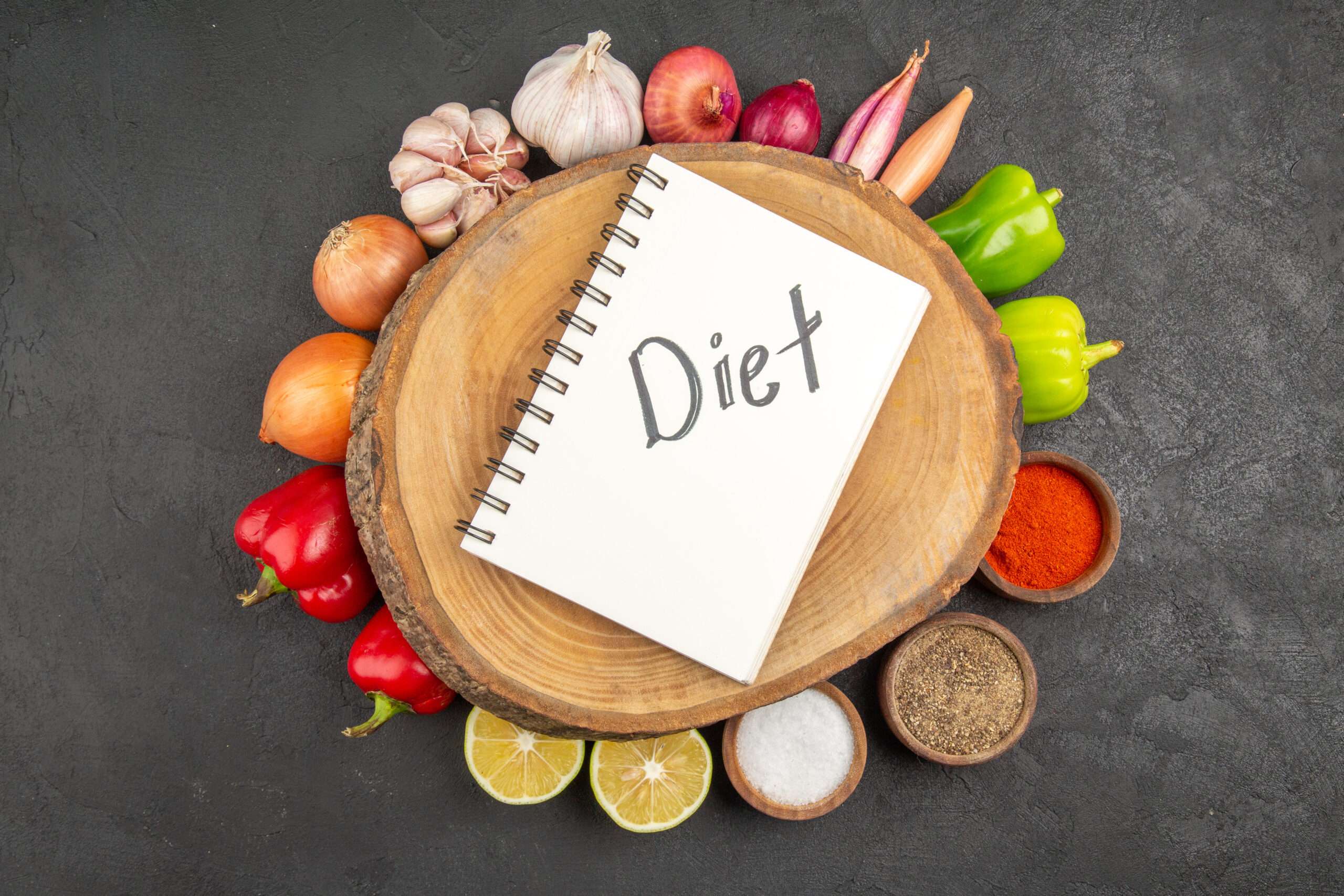

The Role of Food in Disease Prevention
The link between food and health is undeniable. A diet rich in whole, nutrient-dense foods, such as leafy greens, berries, fatty fish, and legumes, has been shown to reduce the risk of chronic diseases like heart disease, diabetes, and certain types of cancer. By regularly consuming these healthy foods, you can significantly improve your chances of living a long and healthy life.
Boosting Your Immune System
Several of the foods mentioned in this post are known to boost the immune system. Foods like leafy greens, berries, and fatty fish are packed with antioxidants and vitamins that help fight off infections and keep your immune system strong. A well-nourished body is better equipped to ward off illnesses, recover faster from injuries, and function at its best.
Practical Tips for Making Healthy Eating a Habit
Incorporating these healthy foods into your daily meals doesn’t have to be difficult or time-consuming. Here are a few tips to make it easier:
- Meal Prep: Spend some time at the beginning of each week preparing healthy meals and snacks. This can include washing and chopping leafy greens, cooking grains in bulk, or pre-portioning nuts and seeds for easy snacking.
- Stock Your Pantry: Keep your pantry stocked with healthy staples like whole grains, legumes, and nuts. This way, you’ll always have the ingredients you need to whip up a healthy meal.
- Start Small: If you’re new to healthy eating, start by incorporating one or two of these foods into your diet each week. Over time, you can increase the variety and quantity of nutrient-dense foods in your meals.
- Experiment with Recipes: There are endless ways to prepare these healthy foods. Experiment with different recipes to find meals you enjoy. For example, try making a quinoa salad with leafy greens and avocado, or a smoothie with Greek yogurt and berries.
Conclusion: Elevate Your Health with the Right Foods
By making small, intentional changes to your daily diet, you can dramatically improve your health and well-being. The top 10 healthiest foods discussed in this post are not only delicious but also packed with essential nutrients that support heart health, brain function, weight management, and more. Whether you’re looking to prevent chronic diseases, improve your digestion, or simply feel better, these foods will provide the foundation for a healthier, more balanced lifestyle.
As you begin to incorporate more of these nutrient-dense foods into your meals, you’ll likely notice an increase in energy, improved mood, and overall better health. Healthy eating is not about deprivation or restriction—it’s about nourishing your body with the best food possible to support long-term wellness.
Start today by adding one or more of these healthiest foods to your next meal, and experience the positive impact they can have on your life.
FAQs
What are the benefits of eating leafy greens every day?
Leafy greens, such as spinach, kale, and Swiss chard, are packed with essential vitamins (A, C, K) and minerals (iron, calcium) that support bone health, immune function, and heart health. They are also rich in antioxidants and fiber, promoting detoxification and digestive health.
Why are berries considered one of the healthiest foods?
Berries, like blueberries and strawberries, are loaded with antioxidants and vitamins that support brain function, improve heart health, and protect against aging. Their high fiber content helps regulate blood sugar levels and promotes digestive health.
How can I easily add more whole grains to my diet?
You can add whole grains like quinoa, brown rice, and oats to your meals by using them as a base for grain bowls, adding them to soups and salads, or simply swapping refined grains (white rice, white bread) for whole grain options in your everyday meals.
What are the benefits of consuming fatty fish regularly?
Fatty fish, such as salmon and mackerel, are rich in omega-3 fatty acids, which support heart health, reduce inflammation, and improve brain function. Regular consumption of fatty fish can lower the risk of heart disease and support cognitive health.
How does Greek yogurt support gut health?
Greek yogurt contains probiotics, which are beneficial bacteria that help maintain a healthy gut microbiome. These probiotics aid in digestion, support immune function, and help prevent digestive issues such as bloating and constipation.



1 comment
[…] for those who want the flavor of chilis without too much heat. They are often roasted and used in dishes like chiles rellenos, a classic Mexican dish. When dried, poblanos become ancho chilis, which have […]